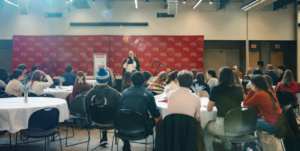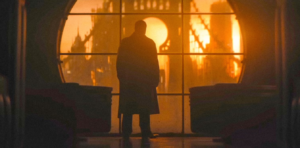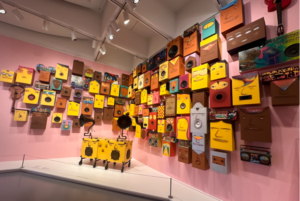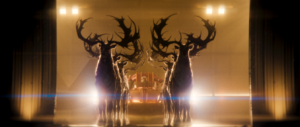From the Desk of the President: A Review of “What I Saw at the Revolution”
Last month, the University was pleased to announce that Peggy Noonan will be the commencement speaker for Catholic University’s graduation this year. Noonan is the author of eight books, a former speechwriter for President Ronald Reagan, and has been an opinion columnist for the Wall Street Journal since 2000. I’ve always admired Noonan’s writing. She has a gift for vividly capturing a particular person, a moment, or a movement in words. Earlier this month, Noonan won the 2017 Pulitzer Prize for Commentary.
In What I Saw at the Revolution: A Political Life in the Reagan Era, Noonan tells of her experience working as one of Ronald Reagan’s speechwriters during his second term. Noonan joined the administration during the 1984 presidential campaign. She wrote some of Reagan’s iconic speeches during her two years at the White House. For example, the Pointe du Hoc speech delivered on the fortieth anniversary of D-Day to honor the American Rangers who scaled 100-foot cliffs at Normandy: “These are the boys of Pointe du Hoc,” Reagan said, “these are the men who took the cliffs. These are the champions who helped free a continent. These are the heroes who helped end a war.” She also wrote Reagan’s address on the Challenger Disaster, January 28, 1986. She concluded the speech with lines from John Gillespie Magee, Jr’s poem “High Flight.” The Challenger crew “slipped the surly bonds of earth” to “touch the face of God.”
Noonan welcomes her readers into the White House with her. She takes them through the editing process. A staffer tried to change “touch the face of God,” in the Challenger speech to “reach out and touch someone.”
She brings them to staff meetings where the different factions of the Reagan administration—social conservatives, libertarians, and old-guard Republicans—fight over policy. She introduces them to Reagan. The first time Noonan saw Reagan, she just caught a glimpse of his foot: “a highly polished brown cordovan wagging merrily on a hassock.”
What I Saw at the Revolution, Noonan says, is an “attempt to catch and freeze and era before it fully recedes.” Noonan succeeds. What I liked best about the book, however, is not what it tells about politics, but what it tells us about prose.
Good writing for Noonan began with lots of reading. In the research phase, she read a lot on the topic of the speech. When she began writing, she would read biographies like Stephen Vincent Benét’s John Brown’s Body. She read poetry like Ezra Pound’s Cantos and the Psalms. Good writing also involves lots of rewriting. Noonan describes herself as “about a fifth draft speechwriter.”
Finally, really good writing requires the ability to see clearly the complexity of a person, a movement, or an event. Maybe a better way to put it would be that good writing requires a certain honesty and generosity of thought. Noonan doesn’t say this, but she demonstrates it. In recounting her early career as a writer for CBS, for example, Noonan recalls the network’s coverage of Boston’s school bussing crisis. In 1974 the U.S. District Court for the District of Massachusetts required black and white children to be bussed to different schools to end segregation. White working class parents in South Boston protested. Noonan thought CBS’s coverage unfairly portrayed the residents of Southie as racist and wrong and the judge as good and right. Then one of Noonan’s colleagues, an African American reporter, shared her experience covering the protests: “She had been taunted and harassed by both adults and children . . . and told to get out before she got it good.” Noonan does not ignore this truth. “Everything I meant to say was true,” Noonan concludes. But everything her colleague said was true too.
At the end of her memoir Noonan recalls a conversation with a friend who described her vocation as a writer to her: A good writer doesn’t allow a political viewpoint or political considerations “decide what you do and do not write, do and do not see.” A good writer is not a partisan or a polemicist. “You don’t have a side, you’re a writer. You’re on the side of your work.”








